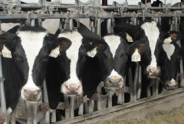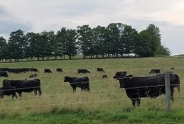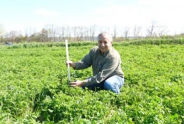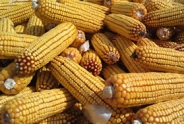NAP - Programa de Asistencia por Desastres Para Cultivos no Asegurados de la Agencia de Servicios Agricolas del USDA
Event Details
Date
February 27, 2024
Time
6:30pm - 7:30pm
Location
Zoom
Host
Central New York Dairy and Field CropsNicole Tommell
315-867-6001
email Nicole Tommell
NAP ofrece ayuda financiera a productores de cultivos no asegurados para protegerlos contra desastres naturales que provocan un menor rendimiento o perdidas de cosechas, o que impidan la siembra de cultivos. Para calificar para la ayuda, las perdidas de cultivos cubiertos deben ocurrir como resultado de una causa de perdida elegible durante el periodo de cobertura y causar o acelerar directamente la estrucci6n o deterioro del cultivo elegible segun lo determinado por el comite del condado.
Unase a nosotros para este seminario web gratuito donde responderemos:
- ¿Que cubre NAP?
- ¿Que es un Periodo de Cobertura?
- ¿Que es un Nivel de Cobertura?
- ¿Que es un Rendimiento Aprobado?
- ¿Como se Calculan los Pagos?
- ¿Como reporto mi numero de acres?
- ¿Como reporto mi producci6n?
- ¿Como presento un aviso de perdida?
- ¿Como solicito un pago?
Nuestra ponente destacada será Ana Villamil, Directora Ejecutiva del Condado Urbano. ¿Preguntas? Nicole Tommell (nt375@cornell.edu), Katelyn Walley (kaw249@cornell.edu).
Haga clic aquí para registrarse en Zoom gratuito.
Upcoming Events
2026 Corn & Soybean Day
January 14, 2026 : Corn & Soybean Day - Hamilton
Hamilton, NY
Lunch included. 2.75 DEC Credits available
January 21, 2026 : Corn & Soybean Day - Ballston Spa
Ballston Spa, NY
Lunch included. 2.75 DEC Credits available
Passing the Torch - Planning Your Farm's Future
January 27 - January 28, 2026
Choose from two locations for this FREE event.
I Thought I Was Covered for That! - Farm Insurance Webinar Series
January 13, 2026
January 20, 2026
January 27, 2026
February 3, 2026
February 10, 2026
Free Webinar Series
Announcements
Statewide Field Crop Pathology Needs Assessment Survey
Your input is wanted for identifying priorities!Sign Up for Our Weekly E-Newsletter
We send out a bi-weekly e-newsletter that has announcements, upcoming programs, and opportunities for you! Registration is quick, easy, and free. Click here to sign up today!Farmers Can Join MeatSuite For Free!
MeatSuite.com is a free resource provided by Cornell University where NY meat farmers can create a farm profile and list their bulk (wholes, halves, quarters) and bundled (i.e. Grilling Bundle) meat products.Why should farmers join?
1. It's free and easy!
2. Connect with more local customers. In the past year the MeatSuite.com farm directory had 8,300 visits from New York consumers. Farm profiles get as many as 25 views per month from potential local customers. We also spotlight MeatSuite farms on social media and bring attention and purchases to farms through highlights and giveaways.
How do I join?
Farmers can visit https://www.meatsuite.com/farmers/ to create a free farm profile. You must list at least one product for your farm's profile to go live. You'll also have access to Cornell's free Meat Price Calculator, a helpful tool for pricing your meat to make a profit.
While you're on MeatSuite, check out the "Creating Consumer-Friendly Bulk Meats" publication on the log-in page. It has tips on how to create bulk meat products that are easier for first-time buyers to say "yes" to.
If you have any questions as you create your farm profile or products, we're here to help! Please email Matt LeRoux at mnl28@cornell.edu.





